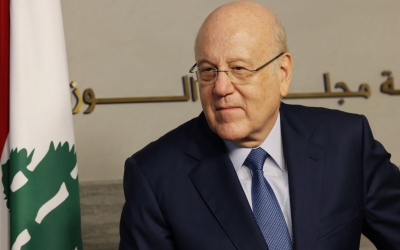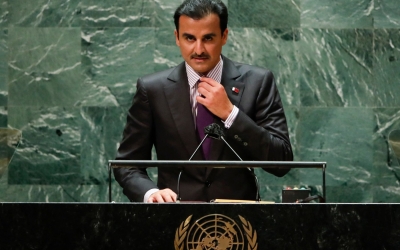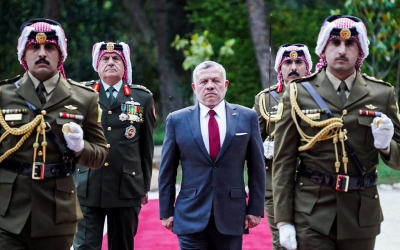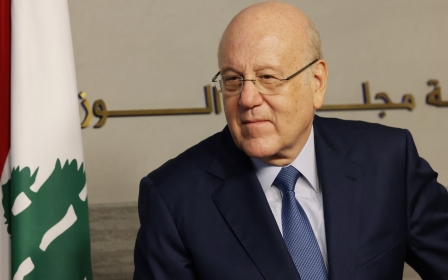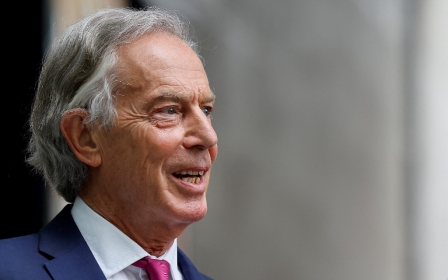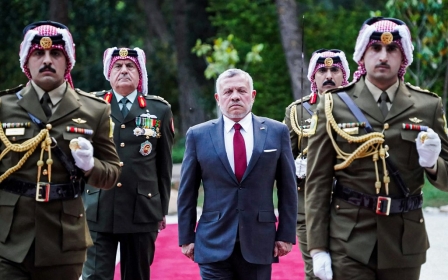Pandora Papers and the Middle East: Which leaders are implicated?
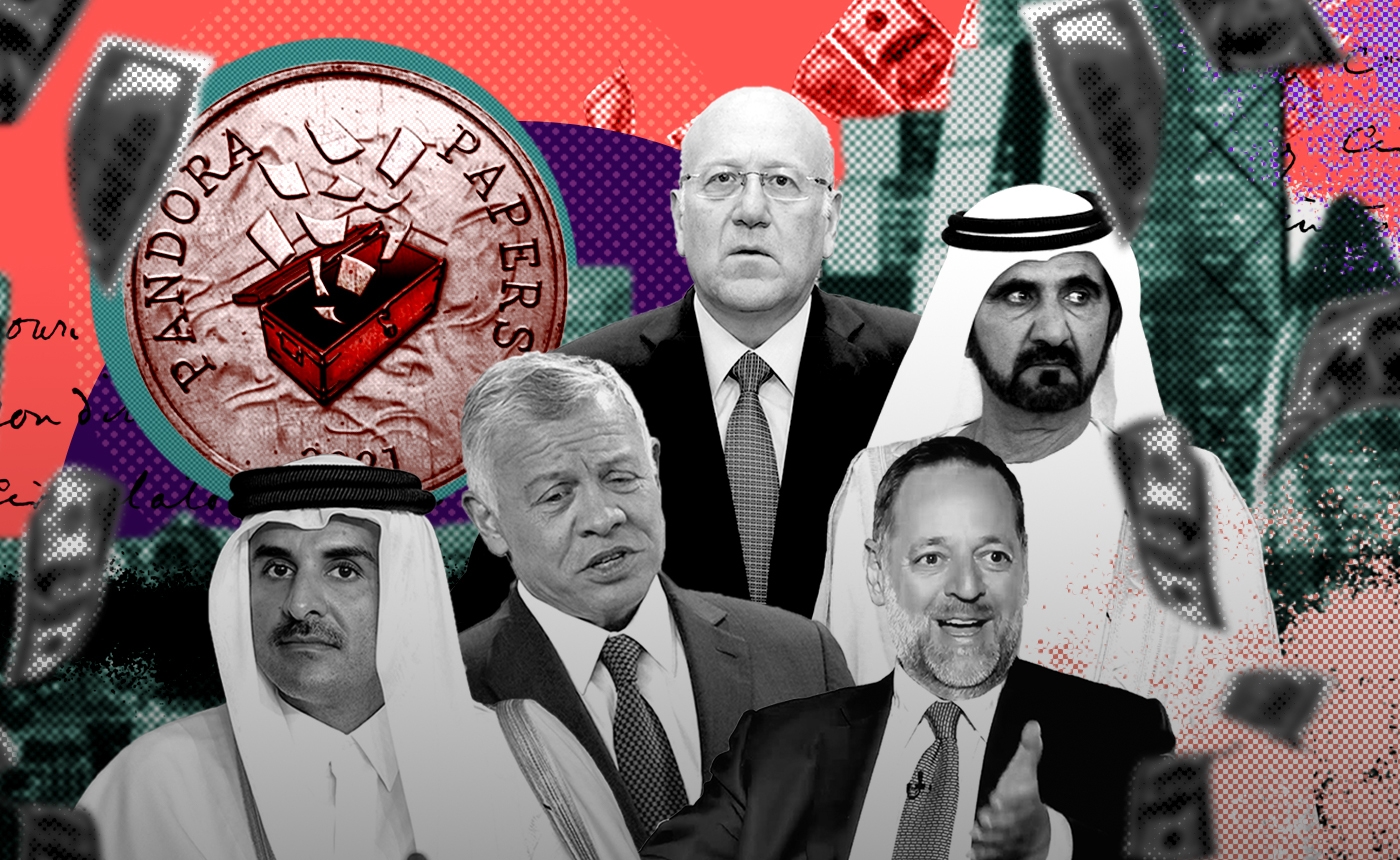
A massive leak of more than 11.9m confidential files to the International Consortium of Investigative Journalists (ICIJ) has revealed the secret offshore holdings of a host of rulers across the Middle East.
The Pandora Papers show how the rich and powerful establish companies in secrecy jurisdictions in order to keep their assets hidden.
The biggest tax haven leak in history, the financial and legal records expose what the ICIJ called a "system enabling crime, corruption and wrongdoing, hidden by secretive offshore companies".
While establishing offshore companies in territories such as the British Virgin Islands (BVI) or Panama is not necessarily illegal, it is a common tool for tax evasion, money laundering, and other secretive financial practices.
The king of Jordan, emir of Qatar and prime minister of Lebanon are among a host of Middle Eastern power players to feature in the files. Middle East Eye breaks down the most prominent revelations, country by country.
Lebanon
Currently going through one of the worst economic crises in human history, Lebanon's elite are making good use of offshore tax havens, at a time when millions of their fellow countrymen cannot access their bank savings or basic services.
Worth more than $2bn, Lebanese Prime Minister Najib Mikati is the owner of a company created in Panama and then used to buy property worth more than $10m in Monaco. Mikati's M1 Group is linked to two companies based in the British Virgin Islands, which were used to buy offices in central London.
The prime minister's son told the ICIJ that Lebanese nationals use Panama and BVI companies “due to the easy process of incorporation”, and not to evade taxes.
Mikati's predecessor Hassan Diab is also listed in the Pandora Papers, as the part-owner of a BVI shell company.
Veteran banker and former minister Marwan Kheireddine has been dubbed the "head of the gang" by Daraj, after the leaks revealed that he co-owns two BVI companies, one of which he used to buy a $2m yacht.
Currently under investigation for money laundering, Central Bank Governor Riad Salameh has been tied to two further offshore companies by the Pandora Papers leaks. Salameh, who has dismissed the investigations into him as "politically motivated", is now thought to have assets in the hundreds of millions.
Qatar
The emir of Qatar, Sheikh Tamim bin Hamad Al Thani, and former prime minister and billionaire Hamad bin Jassim Al Thani are revealed to be behind offshore accounts worth hundreds of millions of dollars.
Tamim bin Hamad was tied to at least two companies registered in the British Virgin Islands investing in real estate in the United Kingdom. Using what the ICIJ described as an “elaborate offshore structure”, the sheikh’s mother, Moza bint Nasser, bought three properties in 2013. These were among the most expensive in London, amounting to $187m.
The Pandora Papers revealed that Hamad bin Jassim, who previously served as Doha’s prime minister, foreign minister and the head of the Qatar Investment Authority, has used offshore companies in tax havens such as the BVI, the Bahamas, Panama and the Cayman Islands.
Jassim, whose net worth is estimated at $1.3bn, used a complex chain of subsidiary companies and trusts in order to make investments and shield his family wealth from taxation.
UAE
Dubai ruler Sheikh Mohammed bin Rashid Al Maktoum, prime minister and vice president of the emirate since 2006, is revealed by the Pandora Papers to own a plethora of upmarket and luxury properties across Europe through offshore entities registered in tax havens.
According to the ICIJ, Shiekh Mohammed secretly registered three companies in the tax havens of the BVI and the Bahamas to carry out business.
These companies were registered by the Emirati company Axiom Limited, partly owned by Dubai Holding, a conglomerate of which Sheikh Mohammed is the major shareholder.
Faisal al-Bannai, an Emirati cyber technology businessman, is a shareholder in Axiom, as well as a number of other connected companies in the BVI.
Morocco
The questionable financial dealings of several prominent figures with ties to Morocco, including the sister of King Mohammed VI and disgraced French politician Dominique Strauss-Kahn, are covered in the Pandora Papers.
Princess Lalla Hasnaa is revealed to be the owner of a shell company in the BVI.
The king's sister, who heads the Mohammed VI Foundation for Environmental Protection, has reportedly used the shell company to purchase a home in the United Kingdom worth an estimated $11m using funds listed as belonging to the “Moroccan Royal Family”.
Jordan
Between 2003 and 2017, King Abdullah II amassed an international luxury property empire that includes 14 homes across the United States and United Kingdom, from California to central London.
The properties were bought in secret, using offshore companies incorporated in the BVI to disguise the king's ownership, the Pandora Papers show. Most of the homes were purchased following the 2011 Arab uprisings.
Jordan's Royal Court on Monday said the king had "personally funded" the properties and their related expenses, and said allegations contained in the Pandora Papers reports "included inaccuracies and distorted and exaggerated the facts".
Two former Jordanian prime ministers, Abdelkarim Kabariti and Nader Dahabi, were also mentioned in the Pandora Papers.
Bahrain
Zayed bin Rashid Alzayani, Bahrain's minister for industry, commerce and tourism, holds the controlling stake in a BVI company called Romanstone, through which former British prime minister Tony Blair and his wife Cherie bought a lavish central London townhouse.
The Blairs saved £312,000 in property taxes by acquiring the property's holding company instead of directly buying the building, which is worth £6.5m.
Alzayani has spent more than £60m buying UK commercial property over the past nine years, including the property owned by the Blairs.
Cherie Blair denied any wrongdoing and told the Guardian that the Alzayanis did not want to sell the building separately from their BVI company and that she did not know the identity of the sellers before entering the transaction.
Middle East Eye propose une couverture et une analyse indépendantes et incomparables du Moyen-Orient, de l’Afrique du Nord et d’autres régions du monde. Pour en savoir plus sur la reprise de ce contenu et les frais qui s’appliquent, veuillez remplir ce formulaire [en anglais]. Pour en savoir plus sur MEE, cliquez ici [en anglais].


